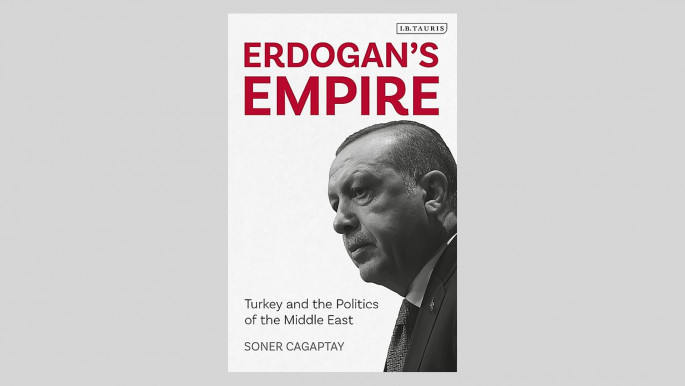The Dictatorship Syndrome by Alaa Al Aswany
In the Arab world, where freedom of expression is a perilous endeavour, scholars are often compelled to turn to local novelists and poets to interpret their often impenetrable societies.
For P. J. Vatikiotis, the preeminent Egypt scholar of the republic during its early years, it was writer Louis Awad. Nobel laureate Naguib Mahfouz often served as Lebanese academic Fouad Ajami's muse.
Everyone who writes on the Levant eventually seeks out the verses of the Syrian poet Adonis to understand its lachrymose history. Today, the Egyptian Alaa Al Aswany, author of The Yacoubian Building, has taken his place among this rarefied pantheon.
In his latest work, The Dictatorship Syndrome, Al Aswany explains dictatorship as a disease whose causes and symptoms must be thoroughly studied if we wish to eradicate it. The work's nine short essays are not scientific in the academic sense.
It will not take its place in the corpus along Hannah Arendt's The Origins of Totalitarianism or Carl Friedrich and Zbigniew Brzezinski's Totalitarian Dictatorship and Autocracy. Instead Al Aswany, a dentist by trade, seeks novelty over scholarship, often falling back on the natural sciences to explain this phenomenon.
Each of these chapters discusses a certain theme. One explains how the dictator moulds the good citizen to place provincial interests such as family welfare above everything. He thus detests revolutionaries and the instability they unleash. Another details the fascist mindset whereby the dictator fashions false truths to thwart critical thinking.
 |
People are reduced to mere unnumbered cogs in the dictator's grand machine to perpetuate his rule |  |
Al Aswany's damning account will gain little traction among the Arab political elite. Its disparaging view of Arab leaders ranging from Egyptian President Gamal Abd al-Nasser to the Kuwaiti royal family will deny it the censor's imprimatur from Morocco to Iraq.
Which leads us to ask - who exactly is its audience? An Arabic world afflicted by dictatorship syndrome denied a manual to remedy it or a West content to allow the disease to fester? It matters little because its symptoms are felt by all, as Al Aswany discusses in his chapter on terrorism.
 |
|
| Read more: Mohammed bin Salman: The rise to power of Saudi Arabia's Machiavellian prince |
The dictator simultaneously atomises society and creates a unified, monolithic one. He prevents people from rallying around a common good while undermining interest groups. Businessmen in Egyptian parliaments never join forces to enact legislation liberalising the socialist economy. Instead, they merely protect their individual interests.
But the dictator equally strips people of their individuality to gain control of their consciousness. To stifle dissent, he creates the one truth which is constantly disseminated by media outlets he controls. Espousing conspiracy theories, he creates an us vs. them mentality. People are reduced to mere unnumbered cogs in the dictator's grand machine to perpetuate his rule.
The irony is that Arab authoritarian leaders seek to mobilise society against their enemies. The late Libyan leader Muammar Gaddafi never ceased to spur his people against a bureaucracy thwarting his revolutionary program.
Former Syrian president Hafez al-Assad marshalled the country's human and capital resources for the impending battle against Israel. Egyptian President Abd al-Fattah al-Sisi incessantly urges his subjects to strive to modernise the country's ossified economy. But a people stripped of all dignity and critical thinking can do little more than obey the leader's directives.
For these reasons, the dictator's panoply of tools numbs, excites, incites and finally activates. They transform passive receptacles of subservience from victims into active enablers. His people now silence his opponents. They are prepared to fight the conspiratorial enemies who are rarely seen because they do not exist.
 |
The dictator simultaneously atomises society and creates a unified, monolithic one |  |
It is here that the diagnosis that should logically ensue eludes The Dictatorship Syndrome. How far will people submit to tyranny or more specifically, how dictatorial will the leader become? That is, what are the ranges of submission and the extremes of control strategies. Al Aswany does not broach these questions. In Saddam Hussein's Iraq, citizens self-censored themselves in public lest ever-present informants report their perfidy. But in Hosni Mubarak's Egypt, citizens always had a joke about the maladroit president.
 |
|
A dictator can utilise an array of tools to secure obeisance. It is true that in the most authoritarian Arab nations, leaders exclusively employ fear. In Baathist Iraq and Syria, the dictator protects the minorities (Sunnis and Christians) against the majorities (Shia and Sunni) who would otherwise annihilate them.
But in other countries where citizens have (slightly) more freedom, he employs powerful imagery to ensure fealty. In Morocco, the monarchy uses religious symbolism, while in Jordan it emphasises lineage from the Prophet Muhammad. Here the leader does not need conspiracies and fear to rule. He is content with mere awe and respect.
Al Aswany himself demonstrates this spectrum of oppression without actually mentioning it. After a boy tells Saddam Hussein his father spits at the television when the president appears, the parent is summarily killed. But Mubarak pardons an Egyptian girl who criticised him.
But even in a 'republic of fear' the dictator need not rely solely on his security services and glorifying media to sustain his rule. Rather, he acquires it from performing the most mundane of presidential responsibilities.
"Our lives changed, especially after electricity which until then only the cities had," an Iraqi said in 1995. "We believed that electricity and everything came directly from Saddam…We were ready to die for him."
Each dictator thus rules according to his talents and limitations. The charismatic leader relies less on fear and more on charm. In a 1964 speech Nasser lampooned his American benefactors, enthralling his audience with every ribald entailing sacrifices Egyptians were ready to make to protect their honour. The drab Mubarak never believed he was anything more than a place holder, his finger in the dike of bedlam, and treated his people accordingly.
Like Nasser, Sisi views himself as the nation's saviour. But unlike the republic's founder, Sisi lacks his magnetism. His gaffes and incredulous claims of his family's Spartan lifestyle only earn his countrymen's derision; they assemble montages of his bloopers. To keep Egyptians in check he must employ draconian measures his predecessors eschewed.
 |
Each dictator thus rules according to his talents and limitations. The charismatic leader relies less on fear and more on charm |  |
And even in the most totalitarian of dictatorships, there are limits to the level of subservience the government can aspire to. Here we need only mention the movie industry under the Nazis. In his book Film in the Third Reich, David Hull explains that Propaganda Minister Joseph Goebbels refused to muzzle movie studios, fearing an open revolt by a cultural class he could neither silence nor control.
Actors such as Conrad Veidt and directors such as Hans Detlef (Douglas Sirk) could (and did) take their talents to Hollywood. Veidt later appeared as the sinister Major Heinrich Strasser in Casablanca. Cameramen, choreographers and producers joined them.
 |
|
| Read more: Erdogan's Empire: Turkey and the Politics of the Middle East |
War propaganda films only brought the realities of peoples' hardships into sharper focus. Instead, they preferred second rate comedies. Though the Jewish people were the Nazis' eternal enemy, only four overtly anti-Semitic films were produced during their twelve years in power.
Al Aswany's text requires some emendations and context. The United States never directly funded the Taliban, but rather supported United Nations programs in Afghanistan during their rule. Scholars are split about the meaning of al-Saffah, the Abbasid dynasty founder's moniker. The word's original meaning is to pour out water as Ibn Manthur's Lisan al-Arab explains.
From here it developed the connotation of shedding blood, hence Al Aswany's belief that it denotes 'the bloodthirsty one (p. 95).' But others incline to the more innocuous 'the generous one,' meaning one who sheds the blood of animals slaughtered during feasts. And though Mahfouz may have appeased Nasser, becoming 'the darling of the regime (p. 72),' this did not stop it from banning his work Children of Gebelawi on religious grounds and issuing two (later rescinded) arrest warrants.
Such minor corrections do not detract from Al Aswany's work. The only drawback is that his countrymen and the larger Arab world are unlikely to ever discover the remedies he offers to the dictatorship syndrome that haunts them daily.






 Follow the Middle East's top stories in English at The New Arab on Google News
Follow the Middle East's top stories in English at The New Arab on Google News


